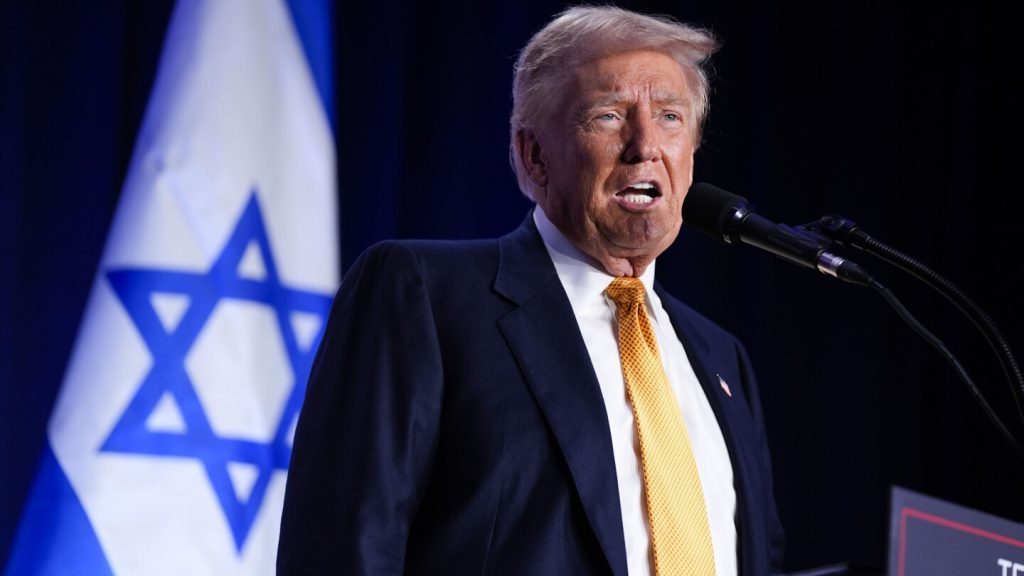Former President Donald Trump made it a point to denounce antisemitism in the wake of a CNN report that detailed inflammatory remarks made by one of his allies, North Carolina Lt. Gov. Mark Robinson. Despite Robinson’s controversial comments, Trump’s campaign is still considering North Carolina a key battleground state crucial to winning back the White House. Trump did not directly address the allegations against Robinson during his recent addresses to Jewish donors and the Israeli-American Council, instead focusing on the importance of winning the White House and saving the country.
Robinson’s reported remarks, including a statement in which he expressed a preference for Adolf Hitler over leadership in Washington, have raised questions about Trump’s chances of winning North Carolina in the upcoming election. Some Republican pollsters warned that Robinson’s controversial statements could cost Trump the state in the presidential race, as polls show that Robinson is lagging behind his Democratic opponent in public opinion. Despite the allegations, the North Carolina Republican Party stood by Robinson, who denied the claims made by CNN, while a spokesman for Vice President Kamala Harris’ campaign reposted a photo of Trump with Robinson, stating that Trump has a “Mark Robinson problem.”
Both Trump and Harris have been rallying their core supporters in preparation for the upcoming election, with Trump making promises to Jewish Americans to be their protector and best friend in the White House. Trump has come under criticism for his associations with individuals who have expressed antisemitic views, but he highlighted his policy changes benefiting Israel during his time in office, such as moving the U.S. embassy to Jerusalem and recognizing Israel’s annexation of the Golan Heights. In contrast, Trump criticized Harris for her handling of the Israel-Hamas war and alleged antisemitic protests on college campuses, urging Jewish voters to reconsider their support for Democrats.
Harris, on the other hand, faced pressure from parts of her liberal base over the war in Gaza, with a Democratic protest vote movement called “Uncommitted” announcing that they would not endorse her for president. The group opposes the Biden administration’s handling of the Israel-Hamas conflict and has called for a ceasefire in Gaza, raising concerns that some Democratic voters may stay home in November. Harris’ campaign did not directly address the group’s announcement but reiterated her commitment to working towards ending the war in Gaza in a way that ensures security for Israel and dignity, security, and freedom for the Palestinian people. The rift within the Democratic Party highlights the complexities of navigating issues like antisemitism and the Israel-Hamas conflict in the lead-up to the election.


